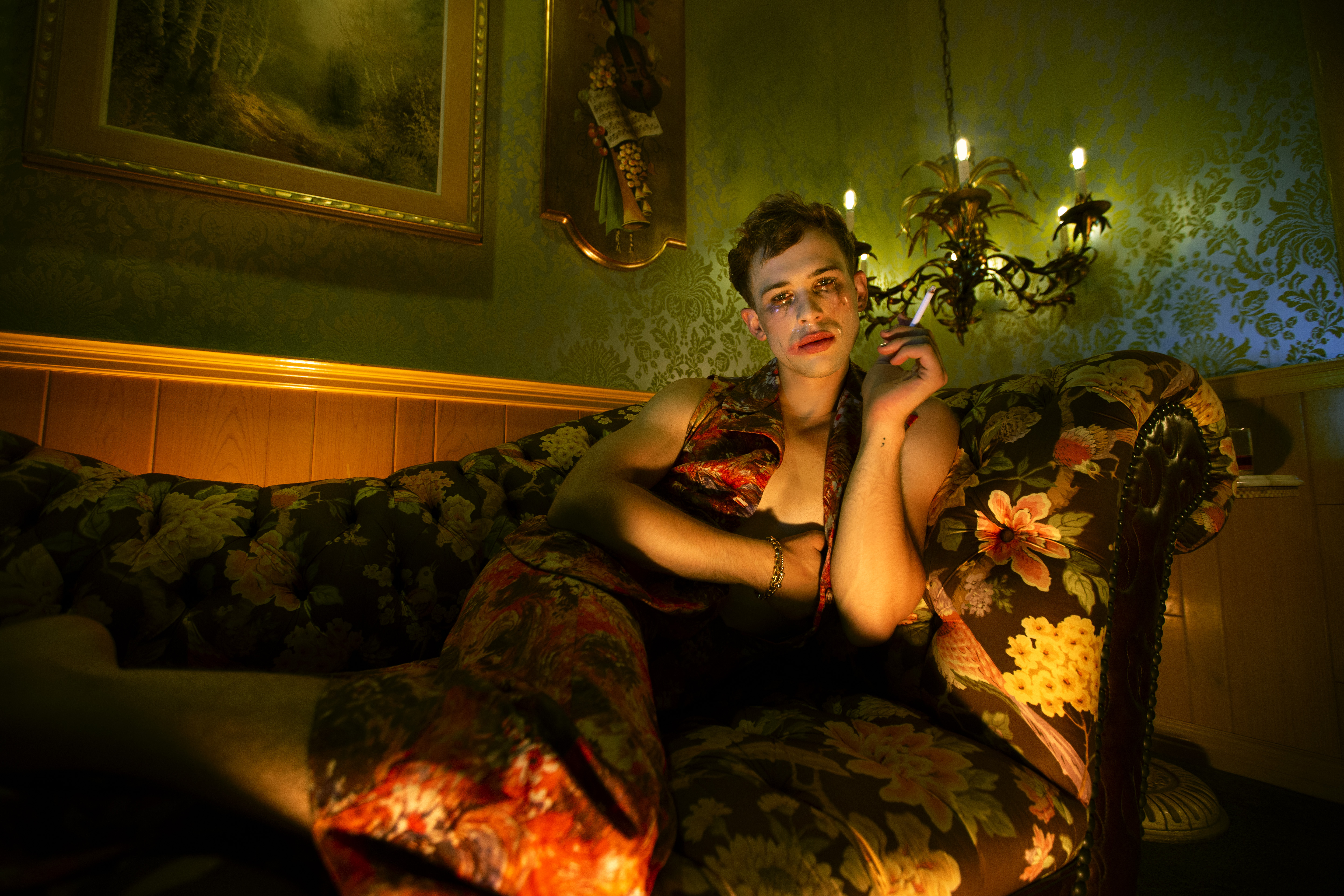Tommy Dorfman Is Serving Drama in a Whole New Way
The Netflix star takes to the stage as Max, in Jeremy O. Harris’s play, “Daddy”.
Tommy Dorfman is known for his political activism, sartorial aptitude and role as Ryan Shaver in the viral Netflix series, 13 Reasons Why. This month, the young actor hops off the screen and onto the stage, making his way under a different kind of spotlight. Alongside Alan Cumming, Ronald Peet and Hari Nef, Dorfman appears in Jeremy O. Harris’s play, “Daddy”.
Though this is perhaps his first professional stint in theatre, Dorfman is no stranger to the drama; having studied it in New York City at his alma mater, Fordham University. And not only is the star trained in theatrics, but it runs in his veins. Whether in front of a camera, a crew, or an audience of hundreds, Dorfman delivers. In a series of images by Julian Buchan, he takes performance to another level, developing a fantasy within the stills captured at the Madonna Inn.
Check out the photos and read our interview with Dorfman below!
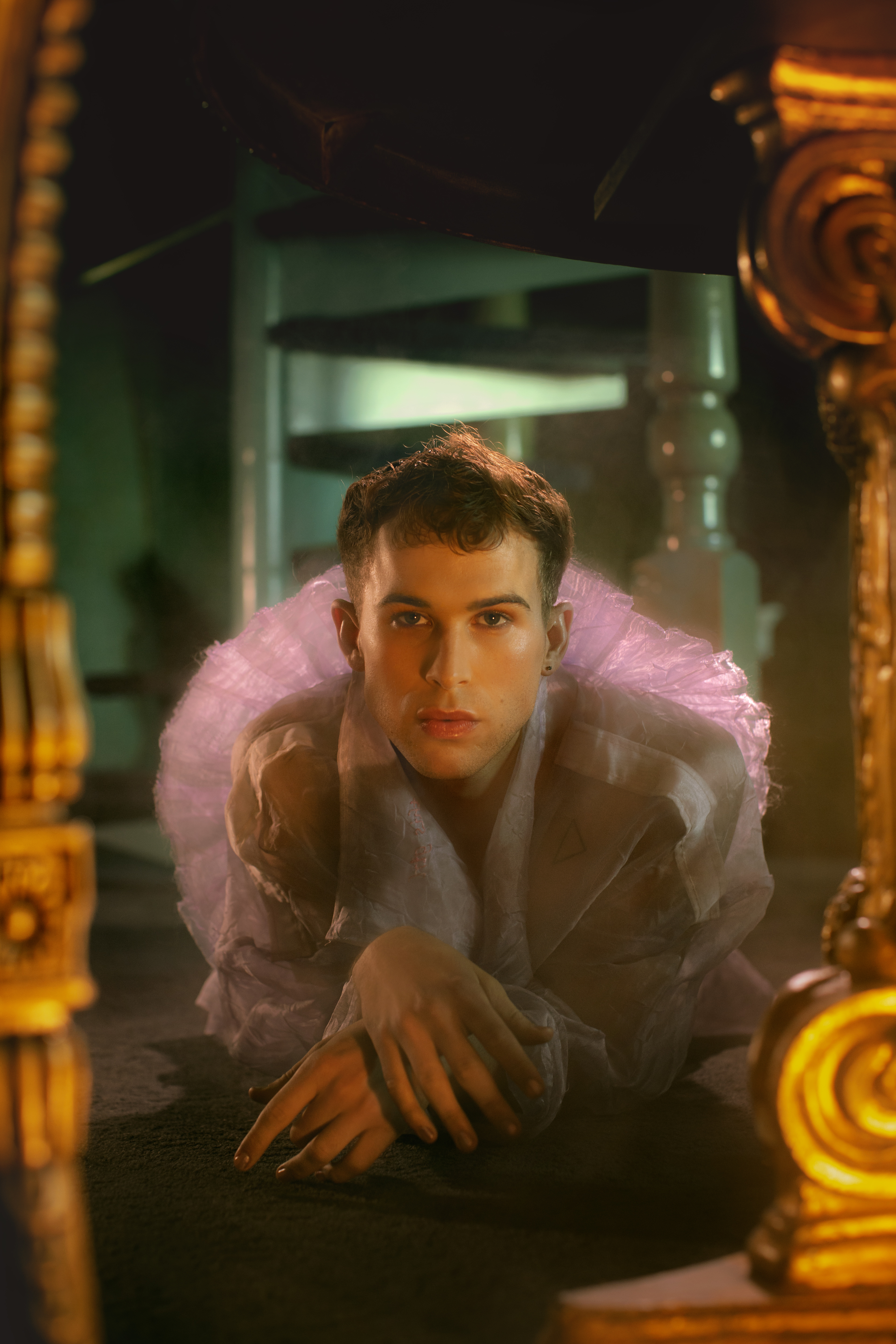
Tell me about the new play you’re in, “Daddy” by Jeremy Harris.
Yeah, “Daddy” by the formidable Jeremy Harris—he’s so smart and enigmatic and a beautiful human—is a co-production at Vineyard Theatre with The New Group. Beyond that, it is a three-act ensemble melodrama starring with Carrie Compere, Charlayne Woodard, and all of these wonderful people and Hari Nef. It’s about this young, black, queer artist, who makes soft sculptures and is sort of like a star is rising throughout all three acts. But as a person, he is spiraling within. With a relationship with an older man and his mother coming to town and his best friends approving and disapproving. At its core melodrama, it is a destruction of a core family unit and you see in the play play without giving out too much about the play itself. And it’s really a wild ride. The set is insane. There’s a pool…
On stage?
Yeah. Werk. We live for the melodrama. I feel like the favorite is a good reference if you saw that. It’s like just above the intensity level of a normal life. It’s like an acid trip.
Very subtle. How did the project come about for you? How did you get involved?
I met Jeremy and he sent me the script. I met him through Hari Nef and I was working on a bunch of other projects. And it just sort of came to be. And once the new group and everyone decided that it was going to be a co-production. I was finishing up the Jenji Kohan show over the summer, and I was working on January Jin, and it just kind of timed out. Like when the script came, and they asked me to audition, I reread it and I was like “oh fuck I really want to do this in this theater. It is what I studied in college.”
Oh, was it? Full circle!
Yeah, I studied theatre. I was an acting major. I thought my first few jobs would just be off, off, off, off, off broadway. And by chance and how the world works, I ended up on a TV show instead. So I’ve been yearning to get back on stage and to get back in this world. My soul is so derived of it. So I am just so grateful to have this opportunity to work with these amazing people and have it be this show. I feel like I am sort of pressing restart on my career in a really fun way.
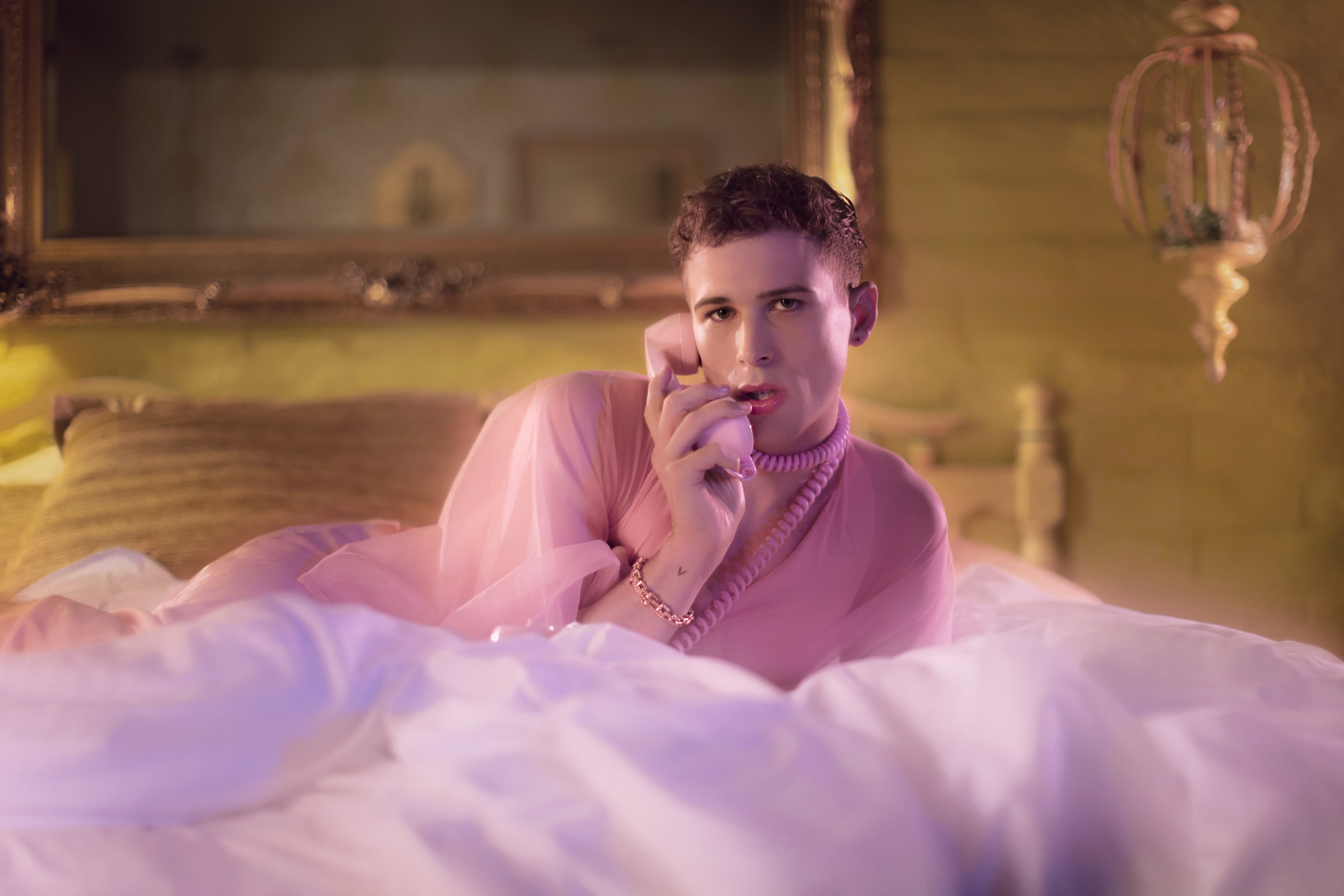
Right, so what’s it like to go from screen to stage.
I actually went from stage as a ballet dancer, from stage as an actor, to screen. And now back to stage. Allen is someone that I look up to so much because his career spans multiple decades of doing whatever the fuck he wants. From film to TV to theater. You know, cabaret shows and burlesque and comedy. It has been such a privilege to work alongside with him in this way and learn from him. I mean I love the idea of being a multifaceted, I mean not idea but pursuing all that I am interested in. And all of it working together in its way.
So how does the performance for you then shift, whether it be screen or stage?
Well I think there is the obvious difference of the cameras not in my face and there are people that are sitting three feet away. And the relationship with the audience and how that works. And everything being moment to moment and that there is no start or stop. All of those technical things of course. I think for me, I just love that trust you have with theater and your ensemble and people you are working with. It is one really long trust fall. You know what I mean? We’re going to jump off the fucking cliff together and we are going to pick each other up as we go. And I love that. I love just being in the moment and the most present I feel in my work is with theatre. For sure. And I try to bring that to film and TV. Of course it is different. And I think, you know, film is such a visual medium, which I think is beautiful and you can tell stories within two seconds with one picture. Its from picture to picture. And with theater, it allows the words to tell the story in a different way and to take life and there is a cadence and a rhythm, and there is potency in what you say. And the themes are longer and more flushed out. And I think often in theater you have the ability to go beyond what humans would normally say to one another. You have the freedom for fantasy in a different way than what film can provide. And this play definitely leads in to for that.
So you have touched upon the ensemble, which is amazing. What is the relationship like with the general cast?
It is so loving. I mean, I have never worked with any of these people before. I feel like such a family.
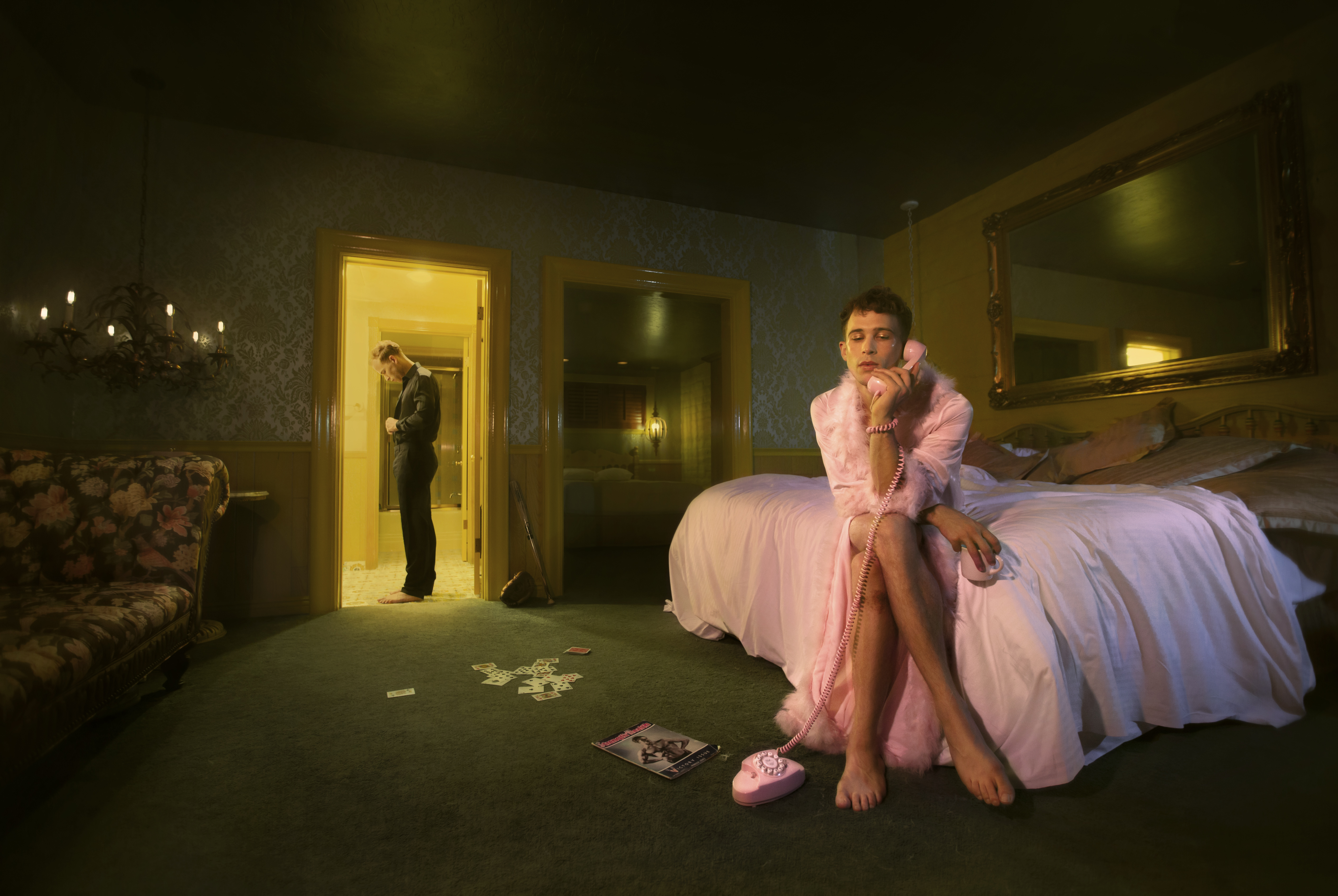
That’s awesome. Can you talk a bit about your role as Max?
Yeah, Max is like an out-of-work actor. He is a realist, which many people might find him as not. He wants the best for Franklin, but I think like most people he also wants the best for him with his relationship with Franklin, and that causes conflict between the two of them. He is very weird, he’s very LA, wears his crystals and is super grounded in a lot of ways, but he can be explosive at times which is fun to play with. I think that is our biggest difference. He has more anger than I do. And he lets it comes out in different ways. But it has been really fun to play that as well. It is always fun to play an actor.
Do you find that you draw from any personal experience when acting?
I mean I know what it is like not working as an actor. Because I do have some friends that are working and battling with that.
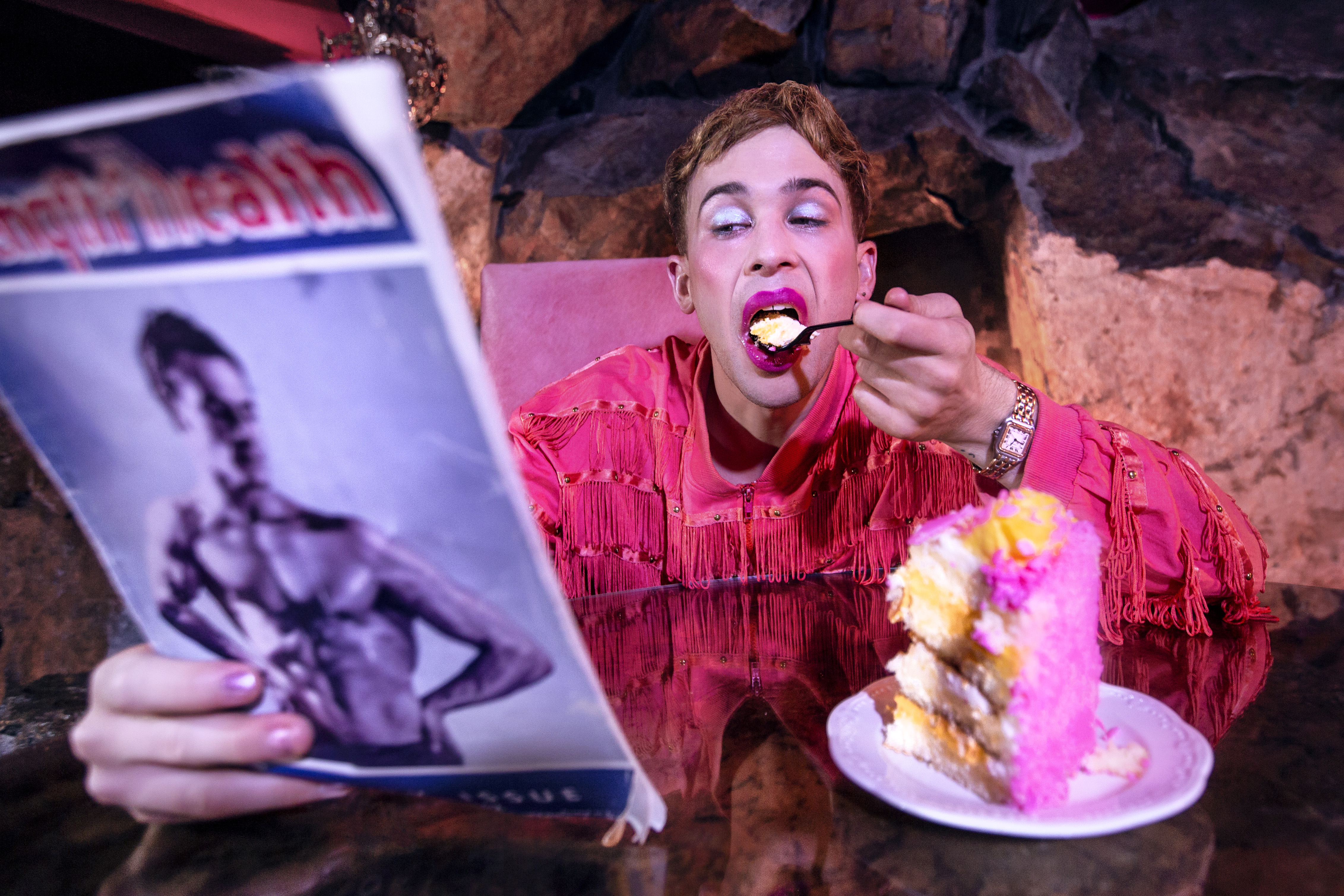
Back to serving fantasies—your photos at the Madonna Inn are beautiful. What was behind that?
Oh, yeah. Julian [Buchan] was just like, do you want to go do a weird photoshoot? And I was like yeah.
And then we went. Which by the way, we were definitely not there legally doing a photoshoot. But I think it will be fine. We just like, got hotel rooms and did it how you would do. It was so much fun. We self-styled, brought all of these costumes! We were just playing with these gender roles and what it feels like. Half of me can feel so feminine and then there are days that there will be a shift.
That is such an important note to highlight. I feel the same way. There is no reason to conform to either. The fluidity is just as important. It is not really highlighted.
And that is also a thing I am okay with in a way, you know? I don’t owe anyone my full gender expression, you know? Or explanation for it. And that is okay. It is parts of self that with existing and living and breathing that they are going to be there and sometimes you can see it and sometimes you can’t. But we just had this widowed woman fantasy at the Madonna Inn!
